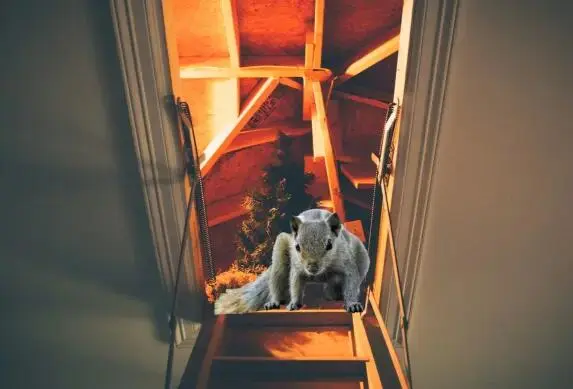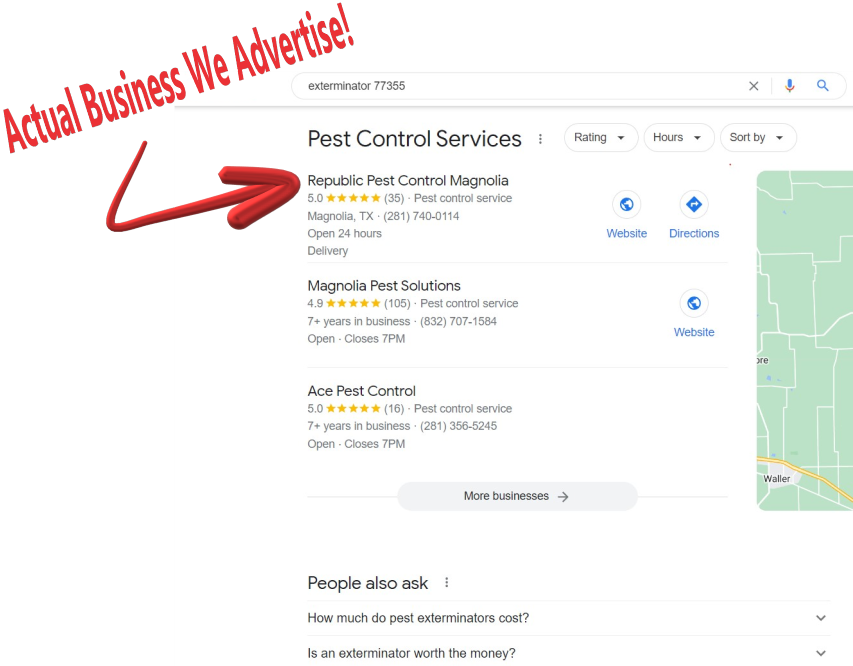As the colder months approach, many homeowners begin to focus on weatherproofing their homes to stay warm and cozy. However, it’s also important to think about protecting your home from pests during the winter. As the weather cools down, pests like rodents, insects, and spiders start to seek refuge inside homes, looking for warmth and food sources. At Republic Pest Control Montgomery, we understand the challenges homeowners face in keeping their homes pest-free during winter. In this article, we’ll guide you through effective ways to winter weatherproof your home from pests and ensure a pest-free season ahead.
Why Pests Seek Shelter in Winter

Pests are often looking for food, water, and warmth, and your home provides all three. As temperatures drop outside, rodents such as mice and rats, as well as insects like cockroaches and spiders, are more likely to invade your home. They want to survive the cold and harsh conditions by finding shelter indoors. Unfortunately, the insulation and warmth your home provides are the perfect environment for pests to thrive, making your home vulnerable during the winter months.
Step 1: Seal Entry Points Around Your Home
The first and most important step to winter weatherproofing your home from pests is to seal up any potential entry points. This includes cracks, crevices, and holes in the walls, foundation, doors, and windows. Even the smallest gap can give pests access to your living spaces. To effectively seal your home:
- Inspect windows and doors: Check for gaps around windows and doors. Replace weather stripping or caulk if necessary to block entry points.
- Seal cracks and gaps: Use caulk or expanding foam to seal any cracks in the walls or foundation.
- Install door sweeps: Ensure all exterior doors are fitted with door sweeps to prevent rodents and insects from sneaking in.
- Screen vents: Cover vents and chimneys with fine mesh to keep pests from entering through these openings.
By taking the time to inspect and seal potential entry points, you can reduce the chances of pests getting inside your home during winter.
Step 2: Clean Up Your Home’s Exterior
Maintaining a clean exterior around your home is another essential step in keeping pests at bay during the winter. Piles of leaves, wood, and debris can act as shelter and attract pests. Here’s how you can keep your exterior clean:
- Remove yard debris: Clear away fallen leaves, branches, and other debris from around the house. Piles of leaves are a perfect hiding spot for rodents, insects, and other pests.
- Trim trees and shrubs: Trim any trees or shrubs that touch or hang over the roof, as they can serve as a pathway for pests like ants and spiders to enter your home.
- Store firewood away from the house: If you use firewood during the winter, store it at least 20 feet away from your home and off the ground. Firewood is a favorite hiding place for insects and rodents.
By keeping your yard tidy and well-maintained, you can discourage pests from getting too close to your home.
Step 3: Maintain Proper Drainage
Proper drainage around your home is crucial for keeping moisture levels down, as excess moisture can attract pests like termites, cockroaches, and ants. Here’s how you can maintain proper drainage:
- Clean gutters: Regularly clean out your gutters and downspouts to prevent water from collecting and creating a damp environment that attracts pests.
- Check for standing water: Ensure there is no standing water around your home, such as in plant saucers, puddles, or leaky pipes. Standing water is a perfect breeding ground for mosquitoes and other pests.
- Redirect downspouts: Make sure downspouts direct water at least 3-4 feet away from the foundation of your home to prevent water buildup.
Keeping moisture away from your home’s foundation is essential for discouraging pests that thrive in damp environments.
Step 4: Insulate Your Home Properly
Insulating your home not only helps with energy efficiency but also helps to prevent pests from entering your home. Many pests, such as rodents, can find their way into your home through tiny cracks in the insulation. Here’s how you can insulate your home:
- Inspect insulation: Check your attic, crawl spaces, and basement for gaps in the insulation. Rodents and insects can easily slip through small openings, so ensuring that your insulation is intact can help keep pests out.
- Seal gaps in plumbing: Check around pipes, vents, and ducts for gaps where pests could enter. Use sealant or caulk to close up any gaps around these areas.
- Add extra insulation where needed: If your home is poorly insulated, consider adding extra insulation to key areas like the attic, basement, and walls to reduce the risk of pest infiltration.
Proper insulation not only helps maintain a comfortable temperature indoors but also serves as a barrier to keep pests outside.
Step 5: Keep Your Home Clean and Clutter-Free
Pests are often attracted to homes that have easy access to food and shelter. Keeping your home clean and clutter-free is a vital part of winterizing your home against pests. Here’s what you can do:
- Store food properly: Keep all food items, including pet food, in sealed containers. Pests like ants, cockroaches, and rodents are often drawn to food sources.
- Clean regularly: Vacuum and sweep floors regularly to remove crumbs and food particles. Pay special attention to areas like kitchens, pantries, and under appliances.
- Declutter: Remove unnecessary clutter, such as cardboard boxes and piles of clothes, which can provide hiding spots for pests.
A clean and tidy home is less inviting to pests looking for a place to settle in during the winter months.
Step 6: Pest Control Services
Even with all the steps you take to prevent pests, it’s still a good idea to enlist professional help to protect your home. Pest control services from a reputable company like Republic Pest Control Montgomery can help you keep your home pest-free throughout the winter. Regular pest inspections and treatments can catch potential issues early, before they become major infestations.
Pest control professionals can also apply preventive treatments to areas where pests are most likely to enter and give you tips on keeping your home pest-free.
If you notice signs of a pest problem, such as droppings, chewed wires, or holes in food packaging, it’s time to call for professional pest control. Republic Pest Control Montgomery can identify the problem and implement a strategy to eliminate pests effectively.
Step 7: Monitor for Signs of Pests
Even after you’ve sealed your home, cleaned the exterior, and applied preventive measures, it’s essential to monitor for any signs of pest activity. Early detection can save you from more extensive damage and costly repairs later on.
- Rodent droppings: Keep an eye out for droppings near food sources, along walls, and in hidden corners. If you see signs of rodent activity, act quickly to prevent a larger infestation.
- Insect sightings: If you see more insects around the house than usual, it may be a sign that they are trying to get indoors for warmth and food. Pay attention to areas like kitchens, basements, and attics.
- Damage to property: Rodents can chew through wires, insulation, and even structural elements of your home. If you notice signs of damage, it’s time to call a pest control professional.
Regularly inspecting your home for signs of pests is a proactive way to protect your home during the winter months.
Conclusion
Winter is a time when pests are more likely to invade your home, but with the right precautions, you can keep them out. Sealing entry points, cleaning the exterior, maintaining proper drainage, and insulating your home are all essential steps in pest-proofing your home for the season. If you need help keeping pests at bay, consider calling in the experts at Republic Pest Control Montgomery for professional pest control services. By following these tips and staying vigilant, you can ensure that your home remains pest-free throughout the winter season and beyond.








































